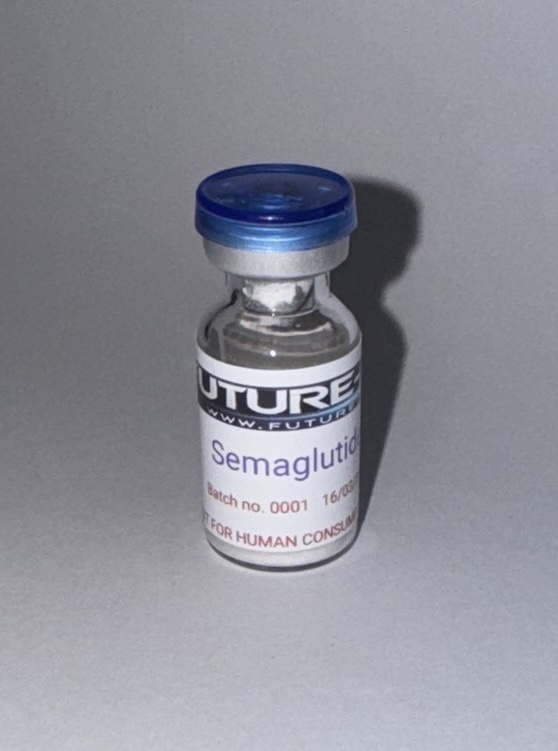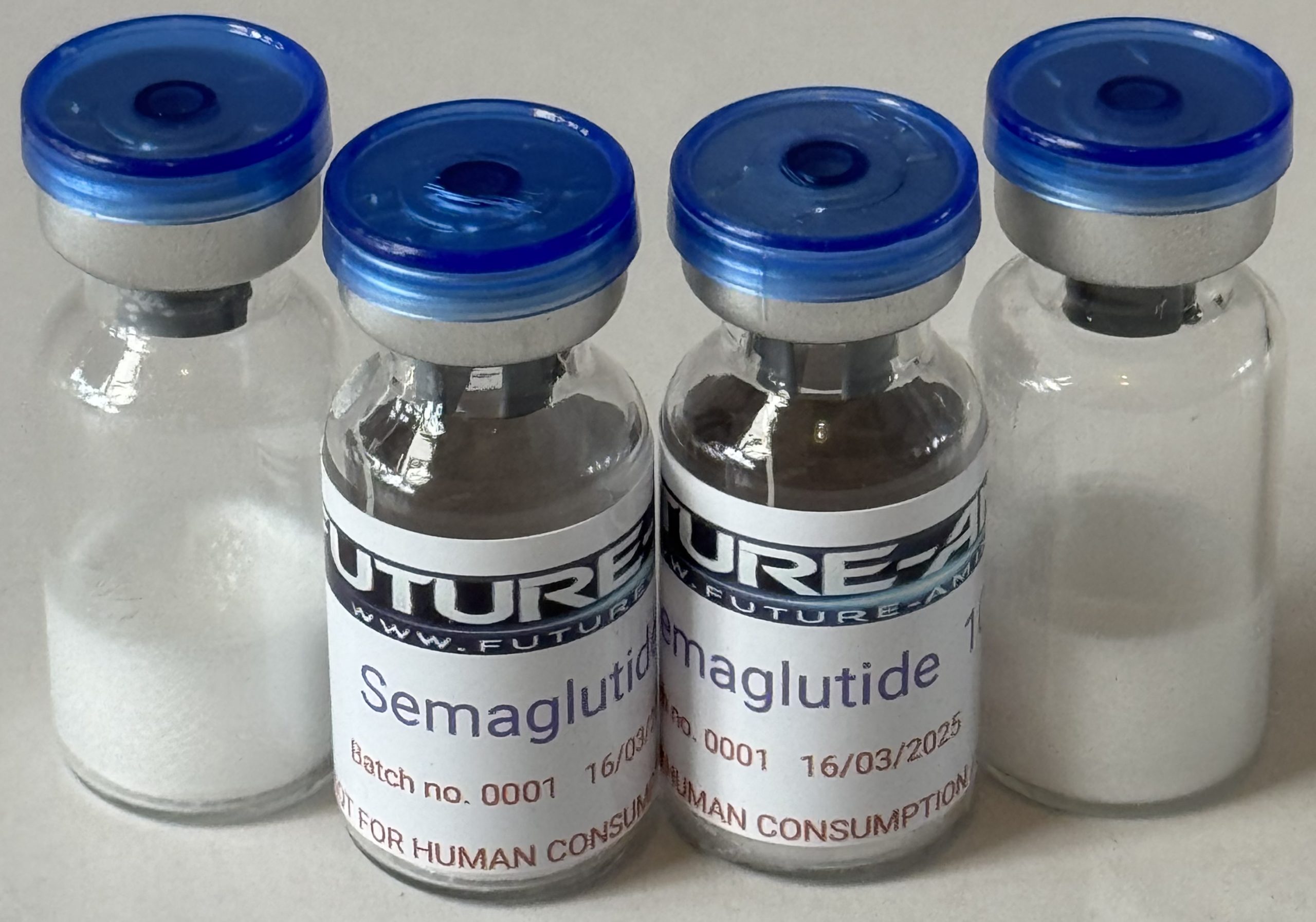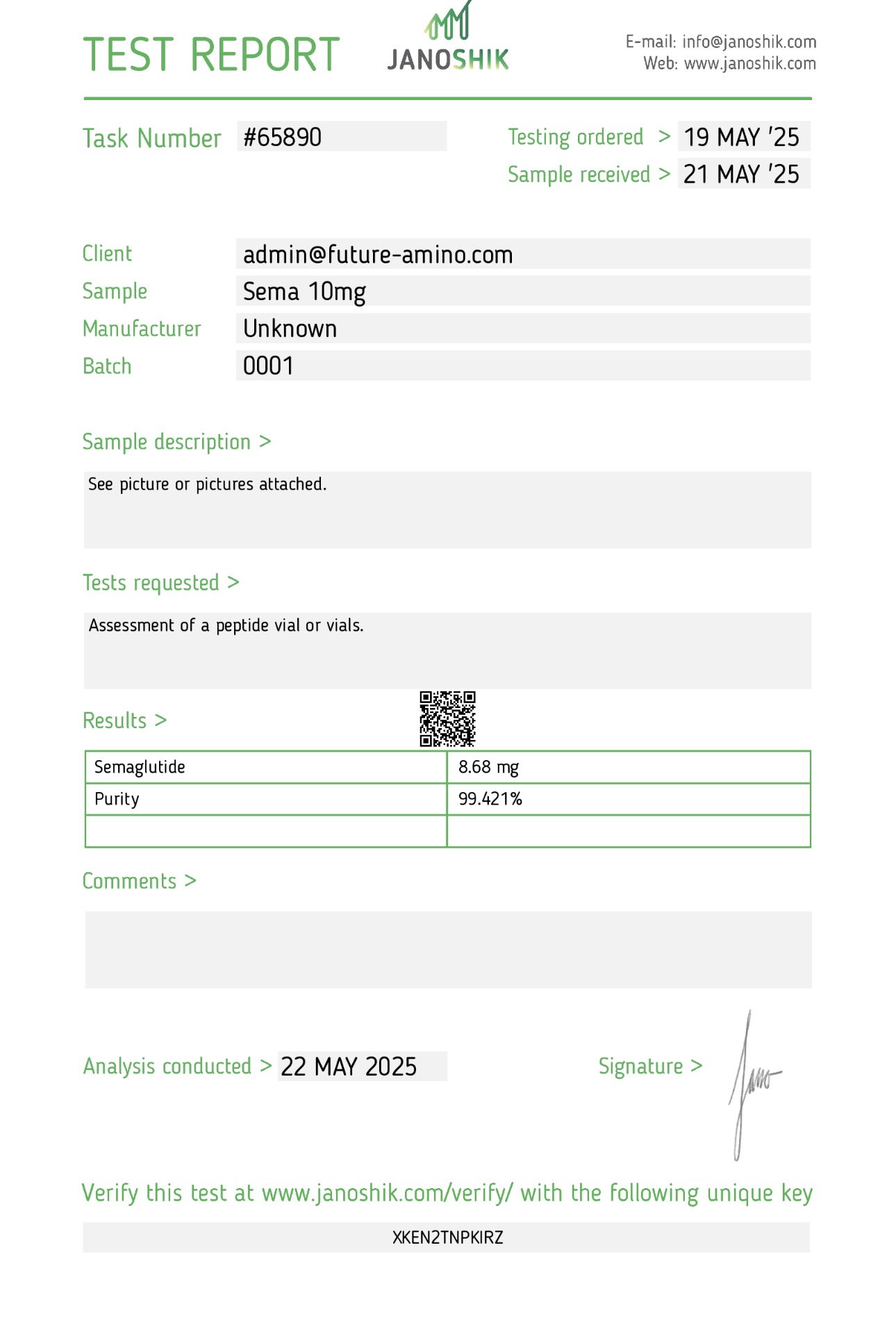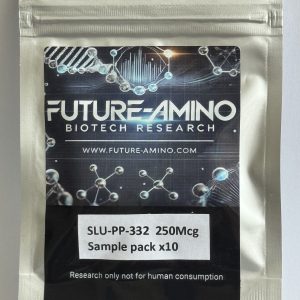Semaglutide 8.68mg tested
Discounted for below 10mg
Semaglutide and Its Impact on Modern Health
Semaglutide has become one of the most widely discussed compounds in the field of health, weight management, and metabolic support. The keyword semaglutide is often associated with a class of medications that help regulate blood sugar, reduce cravings, and provide benefits far beyond the initial purpose for which it was studied. In recent years, semaglutide has shifted from being known only in specialist circles to becoming a recognized term among the general public. This change highlights the growing demand for real, effective solutions for obesity and metabolic health challenges.
The Rise of Semaglutide
Semaglutide works by mimicking natural hormones that influence appetite and glucose control. This effect makes it highly valuable for people who struggle with excess weight or diabetes-related conditions. When looking at the broader trends, semaglutide has sparked debates among physicians, nutritionists, and lifestyle coaches. Each group has recognized its potential to influence not only the body but also overall lifestyle choices. By curbing hunger signals and improving insulin sensitivity, semaglutide offers a strategy that aligns with long-term improvements in diet and exercise compliance.
Clinical Background of Semaglutide
Clinical research into semaglutide has been extensive. Studies consistently show its ability to reduce body mass, improve blood glucose stability, and support cardiovascular health. For many patients, the transition to using semaglutide is a way of breaking free from cycles of failed diets and quick fixes. This is not a miracle solution, but rather a medically supported tool. Researchers have found that sustained use of semaglutide produces consistent results when combined with healthier lifestyle decisions. Patients report improvements not only in physical measurements but also in mental well-being, as they regain control over food-related decisions.
Semaglutide in Public Awareness
The popularity of semaglutide has led to widespread media coverage. Documentaries, social media discussions, and even mainstream news outlets now highlight semaglutide as part of a broader health conversation. While some critics warn against viewing it as a shortcut, many experts argue that it opens doors for people who previously felt trapped by their metabolism. The key is education: understanding what semaglutide does, how it should be used, and why professional guidance is essential. Without this context, there is always the risk of misuse or unrealistic expectations.
Why Semaglutide Has Changed the Landscape
The story of semaglutide represents more than a single product. It reflects a turning point in how society addresses issues like obesity, prediabetes, and metabolic syndrome. Rather than simply telling people to eat less or move more, science has provided an intervention that works with the body’s natural signals. Semaglutide brings together medicine, psychology, and nutrition into a single narrative. For those seeking solutions, the fact that semaglutide is widely studied means there is a strong foundation of evidence to rely upon. Doctors and patients alike now have access to data that proves its consistent benefits.
Responsible Use of Semaglutide
One of the key challenges is ensuring that semaglutide is used responsibly. Medical supervision, dosage adjustments, and patient education are critical. Too often, people expect fast results without recognizing the importance of follow-up. Semaglutide, when used properly, encourages sustainable improvements rather than quick temporary fixes. By focusing on long-term changes in diet, exercise, and mental health, the effects of semaglutide can extend far beyond the duration of treatment. This sustainable outlook ensures patients are not reliant on the compound forever but use it as a stepping stone to greater independence.
Broader Implications of Semaglutide
Looking beyond individual health, semaglutide has implications for public health systems worldwide. Obesity-related conditions place enormous strain on healthcare budgets. By helping patients lose weight and maintain healthy glucose levels, semaglutide has the potential to reduce hospital admissions, medication costs, and long-term complications. Policymakers are beginning to recognize this, which is why semaglutide appears in discussions about preventive healthcare strategies. What once was a niche medical subject is now shaping how governments and insurers think about long-term healthcare planning.
Patient Experiences with Semaglutide
Real-world experiences often reveal the true impact of semaglutide. Patients describe feelings of freedom from constant cravings, better sleep, improved energy, and even reduced anxiety linked to eating. Many highlight that semaglutide has given them the motivation to pursue exercise or balanced diets more consistently. This reinforces the idea that semaglutide is not a replacement for discipline, but a tool that makes discipline easier to maintain. These testimonials support the clinical data, showing that results are not confined to laboratory conditions but apply in everyday life.
Semaglutide and Future Directions
The journey of semaglutide is only just beginning. As research continues, new applications are being tested, including its potential role in treating addiction, non-alcoholic fatty liver disease, and other emerging health challenges. Each discovery adds another layer of significance to semaglutide, proving that its influence is not limited to diabetes or obesity alone. For both patients and professionals, the coming years will reveal even more reasons why semaglutide is a defining advancement in modern healthcare.
External resources for further reading:
Internal reference: Learn more about semaglutide
The Expanding World of Modern Peptide Science
In recent years, public attention has shifted toward the exploration of compounds that support health, wellness, and performance. The discussion around advanced peptides has grown to include everything from blood sugar control to muscle recovery and metabolic balance. Among the many discoveries, there is a wide range of compounds under research, some of which are reshaping how individuals think about long-term health management. Although many of these scientific breakthroughs are complex, their practical applications are becoming easier to explain in simple terms. The rise of advanced compounds shows that health no longer has to rely purely on willpower, but can be supported with precise interventions based on how the body functions.
Background of Peptide Research
Peptides are short chains of amino acids that act as messengers in the body. Their functions are diverse, spanning hormone regulation, tissue repair, and neurological signaling. Because peptides are naturally present in the human body, scientists have focused on modifying or replicating them for therapeutic purposes. This line of research is considered one of the fastest-growing areas of biotechnology. The fact that a single compound can improve both cellular and systemic functions has made peptides highly attractive in both medical and commercial fields. Interest in compounds like these has led to global discussions about their safety, accessibility, and long-term potential for patients worldwide.
How Lifestyle and Science Intersect
One of the most fascinating aspects of modern peptide development is the way it connects science with lifestyle. For decades, people were told to rely on diet and exercise alone to manage conditions like obesity, insulin resistance, or chronic inflammation. While lifestyle remains essential, peptides introduce an additional layer of support. They don’t replace effort, but they provide leverage. By targeting the underlying mechanisms of hunger, glucose regulation, or tissue recovery, compounds in this category make lifestyle changes more sustainable. This is why so many individuals now view peptide therapy as an extension of their commitment to long-term wellness.
Applications Beyond the Obvious
When people first hear about peptides, they often associate them with athletic performance or cosmetic treatments. While those applications exist, the range of potential uses is far broader. Medical researchers have investigated their effects on cardiovascular health, autoimmune conditions, and even neurodegenerative diseases. Some compounds may one day support the prevention of conditions like Alzheimer’s or Parkinson’s by protecting the nervous system. Others are being studied for their ability to accelerate wound healing or minimize muscle loss in elderly populations. What began as niche research is now shaping how doctors and scientists approach some of the biggest health challenges of the 21st century.
Balancing Expectations and Reality
Despite the excitement, it’s important to balance expectations. No peptide, regardless of how promising, can solve all problems on its own. The body is complex, and true results require a combination of medical guidance, consistent effort, and lifestyle adjustments. The keyword semaglutide, for example, became a household term not because it was a miracle, but because it worked alongside patient effort. The same applies to all peptide interventions. They can provide a critical advantage, but responsibility and long-term planning remain the foundation for lasting outcomes. This realistic perspective ensures that people approach the subject with clarity instead of hype-driven expectations.
Why Public Interest is Growing
The surge in public curiosity is fueled by several factors. First, more people are struggling with metabolic and lifestyle-related health issues than ever before. Second, mainstream media has started covering scientific studies that were once hidden away in academic journals. Third, personal testimonials on forums, blogs, and video platforms have amplified awareness. Together, these trends make peptides one of the most visible developments in modern health. Whether it is through professional clinics, wellness programs, or online discussions, the term has become part of everyday conversations. People are eager to learn what options are available and how they may apply to their unique circumstances.
The Ethical Dimension
As with all scientific progress, ethics play a role. Access to advanced treatments often depends on geography, cost, and healthcare systems. This raises questions about fairness and responsibility. Should powerful interventions be limited to those who can afford them, or should they be integrated into public health systems to reduce long-term costs? Many experts argue that supporting patient access will actually save money by preventing expensive complications. On the other hand, policymakers must weigh risks carefully to ensure safety is not compromised in the rush to make these options widely available. These debates will only grow louder as demand continues to rise.
The Role of Education
Education is perhaps the most critical element in the peptide discussion. Without clear knowledge, patients may misuse compounds, fall for scams, or misunderstand their purpose. Healthcare providers are stepping up to address this by offering consultations and structured programs that combine scientific insight with personalized advice. As digital platforms expand, online resources also make it easier for individuals to access balanced information. This ensures people make informed decisions rather than relying solely on marketing claims. The growing presence of educational material is a sign that the field is maturing, and that reliable guidance will continue to spread.
Looking Ahead
The future of peptide science is filled with promise. Already, studies are being conducted on applications that extend far beyond metabolism and weight management. Cancer therapy, regenerative medicine, and even space exploration could benefit from compounds that influence the body at a molecular level. Scientists predict that as new compounds are discovered, the classification and understanding of peptides will evolve further. Each discovery builds on the last, moving the field closer to breakthroughs that once seemed impossible. What began as curiosity about small amino acid chains has now become a frontier of human innovation.
Final Thoughts
The story of modern peptide use is one of progress, challenges, and hope. While public excitement often focuses on rapid results, the real achievement lies in the scientific foundation being built for the future. The correct balance of medical supervision, patient effort, and education will ensure these advancements benefit society in meaningful ways. For individuals, the opportunity to access tools that help regain control over health is transformative. For the medical community, peptides represent a step toward precision solutions tailored to human biology. The conversation has only just begun, and the next decade will likely reveal even greater breakthroughs.
Exploring Broader Impacts of Peptide Research
Peptide research has reached a stage where its influence extends beyond strictly medical fields. Industries such as sports nutrition, skincare, and general wellness are adopting language and ideas once confined to laboratories. This crossover demonstrates how scientific knowledge filters into everyday life. What was once an abstract concept is now a practical element people actively look for in products and services. The blending of science and lifestyle creates both opportunity and responsibility. On one hand, more people can access new approaches to improve their quality of life. On the other, this expansion increases the need for oversight to ensure claims remain accurate and supported by evidence. The balance between innovation and accountability will shape the reputation of this field for decades to come.
Patients and consumers are also demanding more transparency. They want to know how compounds are studied, where they are sourced, and what clinical data supports their use. This demand has pushed researchers and companies to adopt clearer communication strategies. Instead of burying findings in academic journals, information is increasingly being shared in digestible, user-friendly formats. The movement toward open data and accessible explanations allows individuals to make more informed choices. This shift has already influenced how new therapies are marketed and adopted around the world.
Another interesting factor is how modern healthcare systems are adapting to the pace of discovery. Regulatory bodies once moved slowly, but today they face pressure to keep up with the rapid release of data and clinical trial outcomes. This has resulted in new frameworks for accelerated approval pathways. While these systems aim to provide faster access to promising treatments, they also raise concerns about long-term safety. Finding the right compromise between speed and caution will be essential. As these debates continue, it becomes clear that the future of healthcare is inseparable from the future of biotechnology. The keyword semaglutide is an example of how quickly a compound can move from obscurity to becoming a reference point in both scientific and mainstream discussions.
Ultimately, the momentum behind peptide science shows no signs of slowing down. With every breakthrough, new possibilities open for human health and performance. Whether it involves helping individuals manage chronic conditions or supporting healthy aging, the field is positioned to make lasting contributions. The key challenge will be ensuring that access, safety, and education remain aligned with the rapid pace of development. If those elements stay in balance, peptide research will continue to influence the health landscape in ways that are both meaningful and sustainable.






